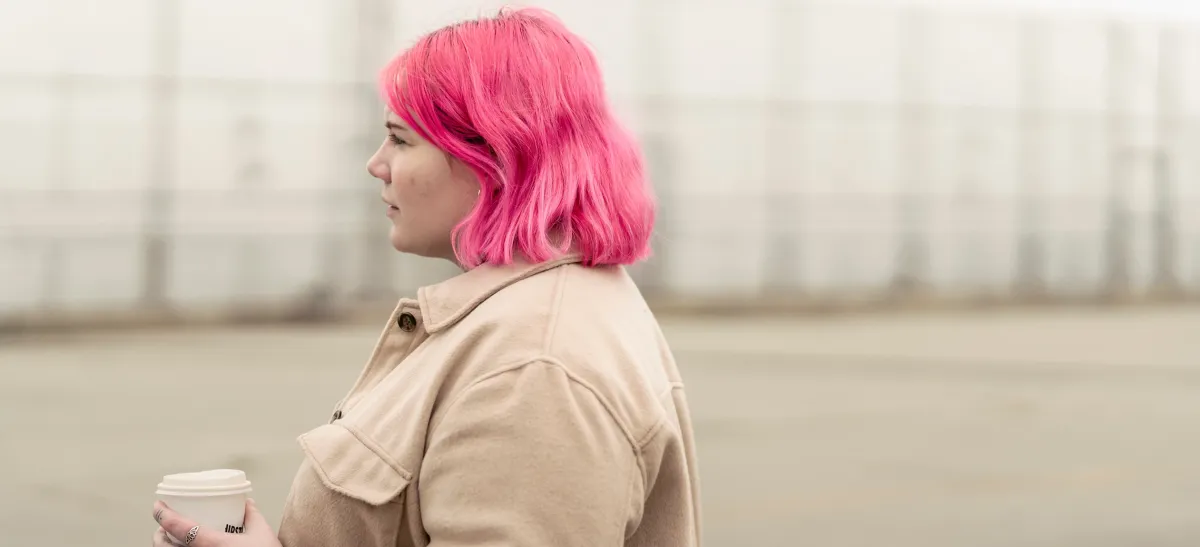On Finding Personal Growth After Breakup: Are We Better Off Not Getting What (We Think) We Want?
Maybe we should view recovery from heartbreak, however protracted, as a success at learning rather than a failure at love.

Access the Audio Read version of this article directly on Spotify for Podcasters.
"Around the world, across cultures, separation is seen as a shameful thing. So much so in fact, that photographs of a woman carrying a ‘Divorced and Happy’ sign at an International Women’s Day march in Pakistan caused a global ruckus on Twitter. But what if that narrative was all wrong to begin with? "
What if a breakup, rather than being a world-ending experience, was a vital piece of the grand puzzle of discovering our sense of self? I believe that we should view recovery from heartbreak, however protracted, as a success at learning rather than a failure at love.
In a recent interview, the star of the film ‘Portrait of a Lady on Fire’, Adele Haenel said, ”maybe it’s not a failure when a love story ends. Maybe it lives within you and changes you forever”. Meanwhile, ‘How to be Hopeful’ author and podcaster Bernadette Russell explained that “breakups can bring with them the discomfort of uncertainty but also the exciting possibility that something wonderful could be on its way”.
In the wake of a separation, we can transform ourselves. In the words of Lauren Howe, a Stanford University post-doctoral fellow who has studied relationship endings, “by seeing breakups as opportunities, people can harness them for self-improvement”.
After she got dumped from a nine-year partnership, one of my Facebook friends started a ‘breakup list’ of daily new challenges, all the sporting activities she’d wanted to have a go at and places she’d wanted to visit but had become diverted from by the cosiness of commitment. Cases of people, like my friend, who ended up feeling more fulfilled post-breakup are endless. As journalist Kate Spicer said, “breakups can be very cleansing, like a psychedelic experience. With hindsight, they’re magical… an idyll, where you can get yourself back”.
Sometimes, that growth shows in the way we consciously hit these job goals after a relationship ends. Indeed, as Dorothy Koomson wrote in The Woman He Loved Before, having things you love other than a partner is good for you, as they ‘keep you grounded’. “If you don't have anyone you can truly give your heart to, then having something that means the world to you can often act as a good stand-in,” she wrote. And passion can turn into extraordinary acts of self-development.
One example is writer Mia Levitin, who launched her dream career as a cultural critic in the wake of her divorce, finding that being single motivated her to dig deeper for her inner resilience. As she told me, “sometimes we’re better off not getting what we think we want”.
Comedian and podcaster Sam Baines also recalls having an explosive post-separation reclamation of her sexuality, sharing: “I felt astounded and thrilled that people fancied me after so long out of the game”. That awakening coincided with the ‘empowering and uplifting’ experience of performing in the West End show Magic Mike, and “speaking to three hundred women every night about loving your body”.
Stand up comedian and writer Sarah Millican famously embarked upon a stellar comedy career after her divorce, discussing in interviews how she needed to “hit the bottom in order to bounce back up again”. It’s almost as if these incredibly successful people all managed to harness the intensity of their emotion, the very same primal hurt that can push us towards destructive acts of revenge, and repurposed it as a force for good. This is actually the opposite narrative to the one we’re used to, the one that tells us staying together is ‘good’ and breaking up is ‘bad’.
Around the world, across cultures, separation is seen as a shameful thing. So much so in fact, that photographs of a woman carrying a ‘Divorced and Happy’ sign at an International Women’s Day march in Pakistan caused a global ruckus on Twitter. But what if that narrative was all wrong to begin with?
When something has hurt us, we can feel as if our limbs and vital organs have been rearranged in different places. The world is upside down. But the rebuilding that follows can sometimes be a truly wonderful thing. I describe this type of liberated happy-sad rebirth as ‘breakup energy’, an idea that podcaster and author Dolly Alderton sums up really well: ‘When you’ve been dumped, it engenders this odd freedom. You make yourself your own project because suddenly you only have yourself to worry about. You’re creating a fun new story for yourself. That kind of fury, outrage, sadness, and humiliation can be converted into something.’
Similarly, I have embarked on my greatest new adventures in those times when romance has faded. In the fleeting, liberating gaps after each of my first four big, serious relationships, I respectively recorded a music album, began a comedy career, wrote a book, and started up a podcast.
“The road to recovery is not linear. It’s not straight. It’s a bumpy path, with lots of twists and turns. But you’re on the right track”, wrote Candice Carty-Williams in Queenie. If you have been through a breakup recently, you’ll probably be experiencing these highs and lows. But while you will probably feel awful for a little while (ugh, I’m sorry), a time of sadness might just lead to better things in the end.
‘The Breakup Monologues' by Rosie Wilby is out now.





